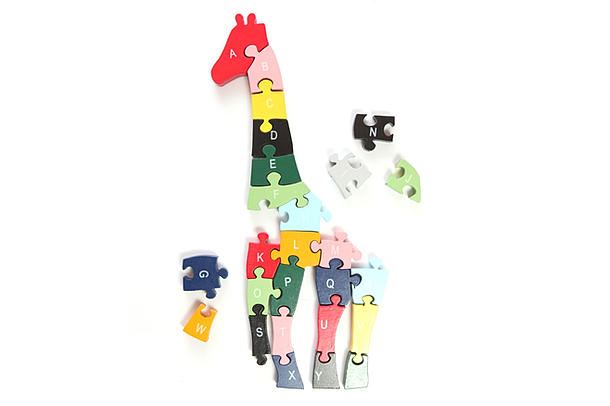"What Difference Does God Make"? This question was posed by Ryan J. Bell, the former pastor turned "somewhat" atheist in his mission to explore a spiritual world much different than the one he had clung to for most of his life. (I qualify Bell's "atheism" simply because I am not sure that it is actually possible for an individual with such an immense knowledge of scripture and theology to completely discard his knowledge of God so immediately in order to become an instant, functional atheist.)
Bell has answered the question for himself on his blog: What difference does God make? For Bell, not much.
If you read about Bell's experience, he explains that, although he identified as a Christian, he has lived as if there was no God, going through the motions of his pastoral duties. Bell was existing as though God, and His Word, was simply a means to an end in his professional life. Bell says that he "rarely read the Bible devotionally and for my own inspiration, in part because so much of it isn’t inspiring at all". Bell says that, in the past year, his church attendance has waned, and with that, his faith has been clouded by an absence of "hope" in God. Bell goes on to elaborate that he now doubts whether God is anything other than an ethereal purveyor of a so-called eternal "life insurance policy" , offering everlasting protection against the red-hot flames of eternal damnation. Bell says that it's likely that a number of Christians actually "may confess an intellectual assent to belief in a divine being and have a well thought out theology but very few of us live as though this God exists and is an active agent in the world."
After reading Bell's blog, I would argue that Bell has never really experienced God. How do I know? Takes one to know one.
For much of my life, I went through the motions of Christianity. I was socialized as a "Christian". I had a firm set of beliefs about who God was and what my faith was all about. Like so many other people on this planet, the sum of my values, skills, and attitudes have been shaped, for better or for worse, by various agents of socialization (family, parents, peers, the education system, mass media, religion, etc.). Because of the nature and process of socialization, I came to believe certain things about my Christian faith and who God is.
So, when I say I was socialized into my religion, what I mean is that there was a long period of time in which no actual "conversion" took place within my heart. Sure, I believed the basics. Adam and Eve ate some radical fruit, had to wear leaves, and ruined it for the rest of us, Noah built an ark and saved all the animals, David took Goliath down with a rock, Moses parted the Red Sea with a staff, Joshua fought the battle of Jericho, Daniel hung out with lions and lived to tell the tale, Jesus died on the cross to save me from my sins, and some sort of scary, end-of-the-world apocalypse is indeed coming- someday. However, despite my knowledge of these biblical facts and stories, my heart had not really done much changing. Not really.
Sure, I believed that the Bible was true, attended church, and grew a tad in my faith over time, but the core of me, the center of my soul, still wandered in the desert. And, over time, my insight into who God was, who God is, became stagnant. That's a spiritually dangerous place to be, and was an especially perilous ledge for me to stand on, considering that I viewed God as a mean, angry, punishing ruler who had just finally gotten so fed-up with humanity that He, in utter exasperation, sent Jesus, to fix our sorry mess on planet earth forever and ever, amen. Religious socialization is just that way. Religious socialization is, in a broad sense, an intellectual conversion to religion.
Before his authentic spiritual (heart) conversion to Christianity, C.S. Lewis explained that a belief in God was a tempting, yet imprudent, illusion. For years, Lewis claimed the God did not exist, but was simultaneously angry with God for not existing. Go figure that one out.
Anywho, life experience had also turned Lewis against faith in God, and his familiarity with loss and disappointment only served to encourage his atheistic beliefs. Eventually, however, after years of resistance and very careful examination, Lewis, no longer able to deny that God was real, reluctantly converted to theism. Lewis was, at first, an intellectual convert to faith. The head knowledge of God hadn’t yet flowed into his heart.
It would seem that Lewis had two conversions, an intellectual conversion to theism and a spiritual, heart conversion to Christianity. At the moment Lewis confessed that God was GOD, his intellectual conversion, he still did not have a personal faith. He was only admitting that there was some celestial being that ruled the universe. While this is a first step, it is simply not enough. James 2:19 (NIV) tells us as much. “You believe that there is one God. Good! Even the demons believe that--and shudder.” I don’t know about you, but I take it on good authority that the demons won’t be sharing Paradise with Christ-followers, simply because they believe in God. God is not simply something you "believe in" so that your last stop on the road includes pearly gates. God invites us into a relationship with Him. Initially, Lewis did not have a personal relationship with Jesus Christ, despite his belief in God. His heart conversion came after his intellectual proclamation of a deity.
In his book, The God Delusion, Richard Dawkins argues that religious beliefs are indeed a product of religious socialization. “If you were born in Arkansas and you think Christianity is true and Islam false, knowing full well that you would think the opposite if you had been born in Afghanistan, you are the victim of childhood indoctrination” (Dawkins, 2006, p.3). Although I do not agree with Hawkins personal beliefs, this quote demonstrates some truth behind religious socialization. Individuals who have only experienced religious socialization have an extrinsic faith that is based upon a shallow understanding of God, but still don’t have a deep, internal spiritual connection with Jesus Christ. Authentic faith erodes our faulty perceptions and inane ideas about who God is, and show us what religion is not.
So, does God really make a difference? It would seem that if we look at some statistics and patterns, from the outside, and on the surface, individuals who claim to be Christians actually fare no better than those who do not identify as such. People who profess to be Christians often engage in the same behaviors as non-believers. Christians have been known to: cheat on their spouses, fix the books, use illicit drugs, view pornography, drink copious amounts of alcohol, and many other unsavory behaviors that should always be avoided at all costs. However, Christians are indeed human, and fall prey to the sin nature that plagues all of mankind. The actual profession of a belief in God or personal identification as a Christian is not a prophylactic for divorce, a formula for drug prevention, a pornography deterrent, and it doesn't preclude people from doing all manner of otherwise shitty things. BUT, can God drag foolish people out of the pits they have dug and redeem them? For sure. Absolutely.
So what does intuition have anything to do with this? Recall that intution is "a natural ability or power that makes it possible to know something without any proof or evidence". In my previous posts, I toyed with the idea that intuition is something that can help us navigate life. And, it often does.
Intuitively, I knew my son had a significant developmental issue (he was indeed diagnosed with Autism), and I know that coffee is the solution to many things (sooooooo many, yo).
However, I also warned that intuition can be a very deceptive thing. If we allow our intuition to guide us through life, we will surely be taken down by disappointment- again and again. God knows all to well our propensity for self-deception, which can, and will, cloud our beliefs, knowledge, and hope in an Almighty, Sovereign God. There is an intellectual glass ceiling. When we reach it- when we wander beyond the fray- and find ourselves in a garden, faced with a choice to either eat the fruit, because our intuition tells us we know best, or to end the game of Chutes and Ladders, our intuition fails if we aren’t intentional. If we don’t ask, seek, and knock. If we leave ourselves to our own faulty ways of thinking and start asking questions to which we only want one answer, or more specifically, one that validates our own selfish, destructive opinions. Takes one to know one.
I know that my perceptual glasses of intuition see God in a way that summons me to put on the monocles of the Word- quickly. If I don't, my intuitions that God might not be fair, is likely not listening to any of my prayers, is too busy for little-old-me, or perhaps, is even a figment of my hopeless imagination, threaten to dismantle my faith, undo my belief, and unravel my heart. My intuition can be helpful, but because I am human, is greatly flawed and has the potential to lead me down very steep slopes on which I prefer not to travel.
And God’s grace. Ah, His grace. Without it, I'd have been ejected from Christianity a long, long time ago. Grace matters. So. Much. We mess up. All of us. Big time. We all, every single one of us, journey throughout life for this thing called Truth. God intentionally created us to question, and wrestle, and argue. God knows that we mortals actually believe our intuitions are so correct we might even threaten to take Him to court (nice try, Job). We press our noses to the glass in search for answers, but quickly turn on our heels when the truth we seek offends us or doesn’t fit our agendas. Our intuition tells us the world has better solutions. Because we’re not feeling it. Bull.



